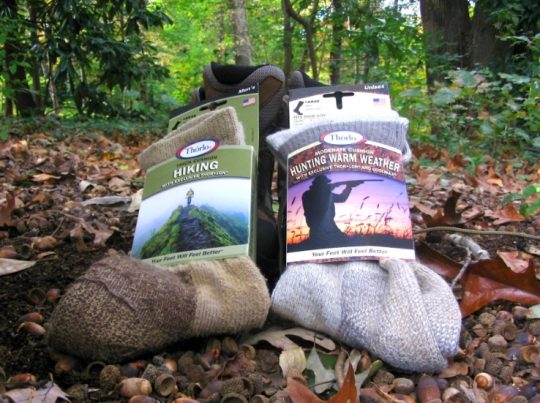5 Reasons bugging out on foot is not that great
Tuesday, August 17, 2021 by Divina Ramirez
http://www.bugout.news/2021-08-17-5-realities-of-bugging-out-on-foot.html

Even if you have years’ worth of food, water and other essentials, bugging out is something you should consider as a prepper in the event of a disaster. By bugging out, you quickly remove yourself from imminent danger.
Many preppers plan to bug out using their vehicles for convenience and efficiency. However, there may be some circumstances that make bugging out via a vehicle very difficult or impossible. In that case, you should grab your bug-out bag (BOB) and set out on foot.
Bugging out on foot is typically portrayed as an exciting or even easy activity in movies and television shows. In reality, it is anything but. In fact, bugging out on foot is arguably the least probable but most severe situation you could find yourself in when SHTF.
Read on to learn why bugging out on foot isn’t as easy as it sounds. (h/t to SurvivalCache.com)
1. It requires thorough planning
Some preppers’ idea of bugging out is simply grabbing their BOB and heading off to safety, whatever that actually means. Such a simplistic bug-out plan leaves a lot to be desired. For instance, how many safe zones or bug-out locations have you planned for? Most people just have one. However, you should have at least three so that you’re not left wondering what to do if one location is compromised.
Bugging out on foot also means you have to prepare different routes to each safe zone or bug-out location. Prepare at least two different routes to each safe zone. For instance, one route is from your house and the other from your workplace.
2. You can only carry very few resources
One of the biggest drawbacks to bugging out on foot is the very limited availability of resources. If you’re setting out with nothing but your BOB, then you need to carry only the most essential supplies so as to not slow yourself down. You’ll also likely have to adapt as you go when it comes to food, water and shelter. (Related: Is your bug-out bag getting heavy? Reconsider these 9 items.)
Expert preppers recommend carrying a BOB that’s no more than 50 pounds. That might seem like a lot, but it’s really not when you factor in things like a change of clothes, flashlights, cordage, full water bottles, canned foods and other supplies that add a fair amount of weight to your BOB.
3. It’s slow-going
Bugging out on foot is a slow-going affair. But most people overestimate their rate of travel and, as a result, end up regretting it in the middle of bugging out.
For example, say your safe zone is some 30 miles away. The average walking speed of most people is between three to four miles per hour (mph). At three mph, you’d reach your safe zone in 10 hours. At four mph, you’d get there in 7.5 hours. However, that doesn’t take into account other factors, like the BOB you’d be carrying.
Plus, people simply do not walk at only one speed. The kind of terrain you’re working with and the weather will also greatly affect your actual speed. You’ll also need to rest for a few minutes when you get tired, which will further add to your total traveling time. Your rate of travel will also be affected by the size of your group. Expect children, older adults and injured individuals to slow the group down.
4. It’s physically demanding
Don’t underestimate how exhausting bugging out on foot can be. It’s one thing to walk for hours and another to walk for hours while lugging a BOB. Age and health conditions will also affect how well you hold up to the journey. Older adults and people with heart conditions, for instance, may have a hard time bugging out on foot.
Uneven terrain and harsh weather conditions can also make the journey even more physically taxing.
5. You’ll have zero protection from various threats
Vehicles provide privacy and protection against the elements – two things you won’t have when bugging out on foot. There is also the risk of getting injured from slips or falls, as well as from encounters with wild animals.
Bugging out on foot severely limits the supplies you can carry and leaves you vulnerable to various dangers. It’s physically demanding as well, meaning it may leave you too exhausted to carry out survival tasks in the wild. However, don’t hesitate to bug out if staying in your current location will be more dangerous than leaving.
Go to Preparedness.news for more articles with tips on bugging out.
Sources include:
RECENT ARTICLES
COPYRIGHT © 2017 · BUGOUT NEWS


